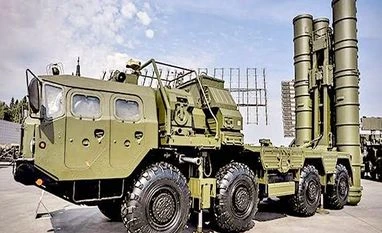8th India-Australia Defence Policy Talks held in Canberra on July 24-25
India and Australia share a Comprehensive Strategic Partnership from June 2020, and defence is a key pillar of this partnership
)
(File photo)
Listen to This Article
Underscoring the breadth and depth of Australia’s burgeoning defence and security relationship with India, the 8th India-Australia Defence Policy Talks (DPT) were held in Canberra on July 24-25.
“During the DPT, both sides reviewed the bilateral defence cooperation between the two countries and explored new initiatives to further strengthen and deepen bilateral defence engagements. The discussions also focused on identifying ways to strengthen partnership in co-development and co-production of defence equipment,” said India’s Ministry of Defence (MoD) on Wednesday.
India and Australia share a Comprehensive Strategic Partnership since June 2020, and defence is a key pillar of this partnership.
“Both sides reaffirmed their commitment to fully implement the Comprehensive Strategic Partnership based on mutual trust and understanding, common interests and shared values of democracy and rule of law,” said New Delhi.
The strategic framework for Indo-Australian security cooperation in the Indian Ocean Region (IOR) is provided by the Quadrilateral Group – or the Quad – a four-nation grouping that features the US, Japan, Australia and India.
Also Read
Every year, the four Quad navies take part in a major multilateral maritime exercise, named Exercise Malabar.
The Malabar series of exercises began in 1992 as an annual bilateral naval exercise between India and the US and has now come to include Australia and Japan as well.
Over the years, Malabar has grown in scope, realism and complexity, with scenarios now being painted of the ingress of People’s Liberation Army (Navy) warships and submarines into the Indian Ocean and ways to counter them.
On September 15, 2021 the military architecture for confronting China was further expanded. Washington joined hands with the UK and Australia to create an “enhanced trilateral security partnership” that was dubbed AUKUS (Australia – UK – US).
India and Australia’s partnership is based on a shared vision of a free, open, inclusive and prosperous Indo-Pacific region.
The two democracies cite common stakes in the peace and prosperity of the entire IOR.
New Delhi and Canberra engage through a “2+2 mechanism” at the foreign affairs and defence ministerial level. The 8th DPT reviewed the outcomes of the maiden 2+2 conducted in September 2021.
Both sides agreed to early finalisation of a hydrography agreement. They also exchanged views on the geo-political situation, regional and global issues of shared interest.
The Indian side also highlighted the potential of its defence industry, with its capability to cooperate with Australia’s armed forces in shipbuilding and maintenance.
New Delhi has long sought a leadership role in providing security and responding to crises in the IOR. At a UN Security Council open debate in August 2021 on “Enhancing Maritime Security: A Case For International Cooperation,” Prime Minister Narendra Modi spelt out a five-point action plan.
First, he proposed removing barriers from legitimate maritime trade. Citing India’s vision of SAGAR – (Security and Growth for All in the Region) – he proposed creating an inclusive structure of maritime security in the IOR.
Second, Prime Minister Modi proposed that maritime disputes must be settled only on the basis of international law. He cited the example of India’s resolution of its maritime dispute with Bangladesh.
Third, Modi proposed that all nations join hands in facing natural disasters and maritime threats together.
Citing the example of India’s response to cyclones, tsunamis and pollution, he cited India’s leadership in sharing maritime domain awareness in our region.
Fourth, Modi suggested joining hands to protect the maritime environment and from plastics and oil spills, while acting jointly against overfishing and marine poaching.
Finally, he proposed encouraging responsible maritime connectivity. While infrastructure is essential for increasing maritime trade, the sustainability and absorption capacity of regional countries must be kept in mind.
More From This Section
Topics : India Australia Defence plan
Don't miss the most important news and views of the day. Get them on our Telegram channel
First Published: Jul 27 2023 | 1:17 AM IST
